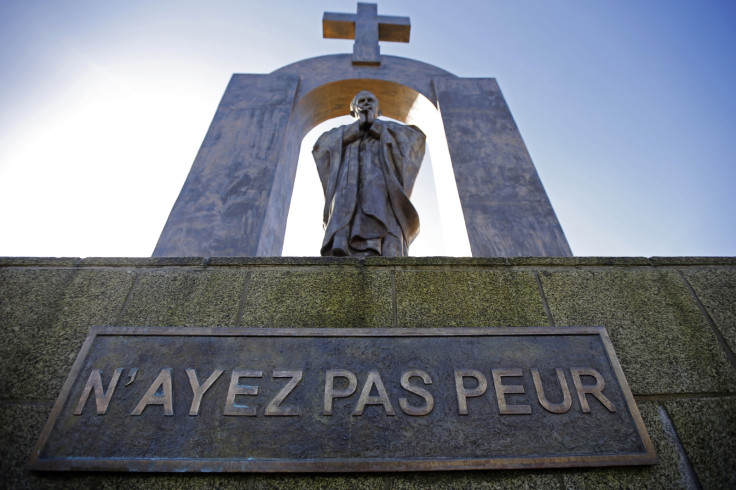France and Poland in major spat over John Paul II statue

KEY POINTS
- The statue was given to France as a gift from Poland in 2006.
- The ruling has sparked a heated debate on secularism.
A diplomatic row has erupted between France and Poland after court ordered the removal of the cross above a statue of Pope John Paul II in Brittany.
The statue, which is 7.5m high, depicts the late pope praying and is adorned with a large cross. It is located in the commune of Ploërmel, in western France, reports the Daily Telegraph.
The French Conseil d'Etat – the highest administrative instance of the country - ruled that the cross, located in a public space – broke a 1905 law that orders the separation of Church and State. It has demanded that the cross is taken down, which hasn't pleased Poland.
After the decision was issued, Polish Prime Minister Beata Szydło vowed to save the statue from "dictates of political correctness" and "censorship" and vowed to ship it back to Jean Paul II's native land.
"Our great Pole, a great European, is a symbol of a Christian, united Europe," she said, adding that such secular laws promoted "values which are alien to our culture, which leads to terrorising Europeans in their everyday life".
The mayor of Ploërmel, Patrick Le Diffon said he didn't wish to "rekindle a war of religion," and offered a compromise: he will sell the portion of land where the statue is located to a private investor so that the statue – and its cross – can remain.
A decades-long debate
The decision to remove the cross sparked backlash from French Twitter users as well, who shared pictures on different cross – outdoors or indoors – with the hashtag: #montretacroix - "show your cross." One user suggested Poland took Notre Dame and Sacre Coeur – two central monuments of the French capital – as well as the John Paul II cross. Another went as far as comparing the Conseil d'Etat to Isis.
Many right-wing and far-right representatives have condemned the ruling as well. Vice president of the French National Front Louis Aliot deemed the decision "iniquitous" and argued it would lead to "the destruction of our Judeo-Christian society".
However, the Catholic Church judged the ruling "balanced". A French secularism watchdog said the ruling was only abiding by the 1905 law. It also denied that the ruling would lead to the dismantlement of crosses places in graveyards. Those are not included in the 1905 law.
The monument, which was a gift from Poland, was controversial from the get-go. Many locals and secularist organisations campaigned for its removal.
The definition of secularism has been at the heart of a passionate debate for decades in France. Some agree secularism should result in a ban of all things religious in French open spaces, while others think that it means all religions should have their place in the French landscape.
The law itself reads: "The Republic does not recognise, pay, or subsidise any religious sect" and guarantees "freedom of conscience" and "the free exercise of religion" as long as it doesn't disrupt public order.






















